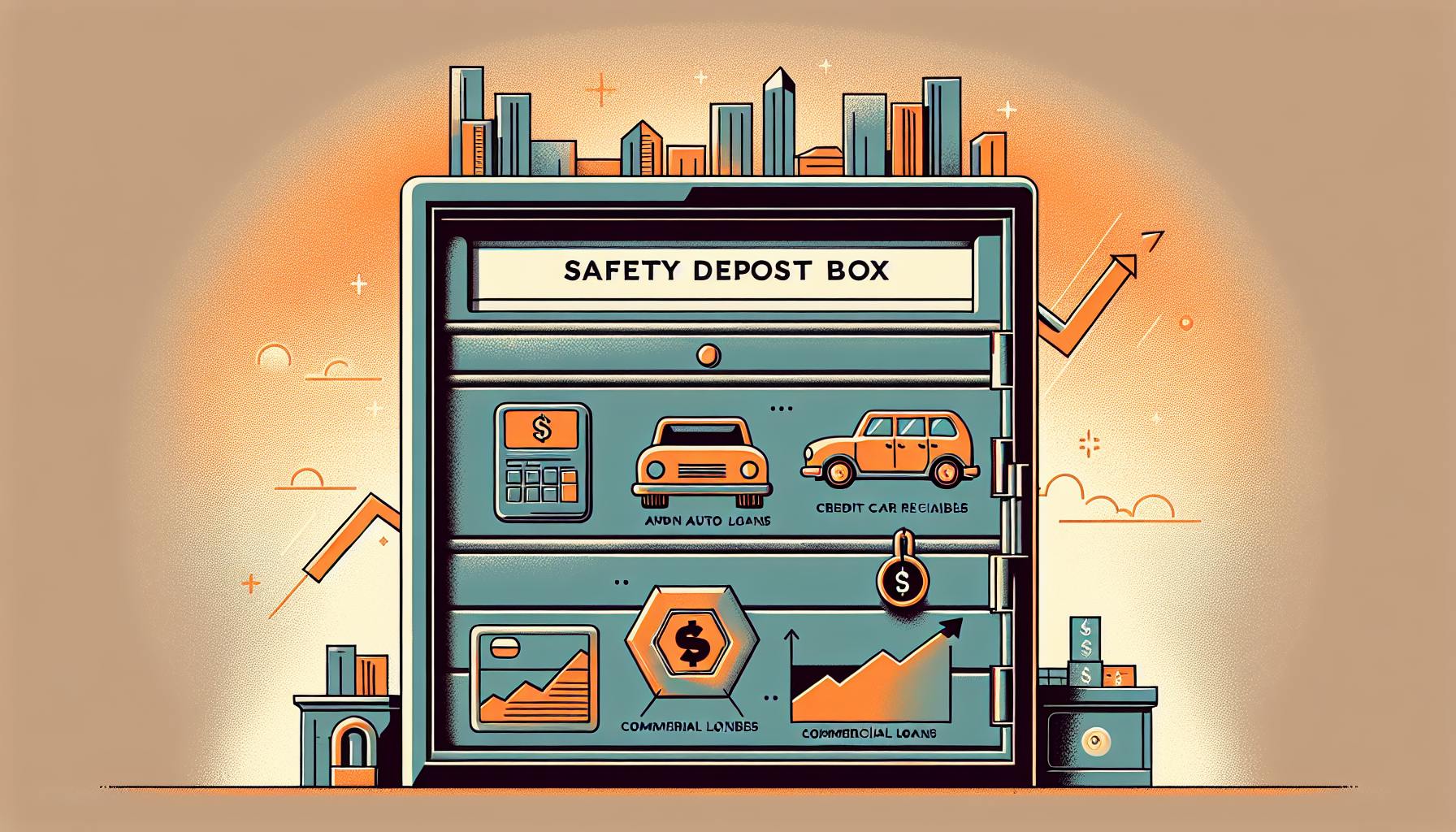Most people likely agree that determining the earning potential for a bank branch manager role can be confusing given all the variables.
Well, by looking at key data around average salaries, bonuses, benefits packages and more, you're going to have a clear picture of exactly how much money a bank branch manager can make.
In this post, we'll define what a bank branch manager is, look at standard backgrounds and qualifications, outline core job responsibilities, and dive into compensation details including base pay, performance incentives, overall packages, and career growth prospects to summarize the earning potential.
Introduction
A bank branch manager is responsible for overseeing the operations and staff of a retail bank branch. They manage branch activities like sales, customer service, lending, security, and more to ensure smooth functioning and profitability.
Bank branch managers typically have a bachelor's degree in business, finance, or a related field along with several years of banking experience. Professional certifications like a Certified Bank Branch Manager (CBBM) also demonstrate competence.
Defining the Role of a Bank Branch Manager
A bank branch manager directs staff and operations at a physical retail bank location. Their key duties include:
- Hiring, training, supervising, and evaluating branch staff like tellers, customer service representatives, and loan officers
- Setting and monitoring branch sales goals for products like accounts, loans, credit cards
- Coaching employees to meet individual and team sales targets
- Ensuring excellent customer service standards are upheld
- Overseeing branch security and protecting against fraud/loss
- Managing budgets, expenses, audits, and regulatory compliance
- Analyzing branch performance data and developing improvement plans
They serve as the face of the brand for customers and oversee day-to-day functions to enable smooth operations.
Typical Background and Qualifications
Most bank branch manager positions require:
- Bachelor's degree in business administration, finance, economics, or related field
- 2+ years of experience working in banking or financial services
- Knowledge of bank products, services, procedures, and regulations
- Leadership abilities and people management skills
- Sales, marketing, customer service, and communication competencies
Many branch managers also pursue industry certifications like a Certified Bank Branch Manager (CBBM) credential to further demonstrate their expertise. These qualifications prepare them to effectively manage staff and oversee complex branch activities.
Key Job Responsibilities
This section will dive into the major responsibilities that bank branch managers handle, ranging from operations to sales.
Managing Branch Operations and Staff
As the leader of branch operations, key duties include:
- Hiring, training, and managing branch staff to ensure optimal performance and service quality
- Overseeing daily workflows, tasks, and processes to ensure efficiency and productivity
- Ensuring compliance with regulations, controls, and procedures from governing bodies
- Managing administrative duties like record-keeping, reporting, budgets, and expenditures
- Maintaining supplies and equipment needed for branch functioning
- Providing excellent leadership to motivate staff and boost engagement
By effectively managing workflows, processes, and people, branch managers enable smooth operations.
Driving Sales and Business Development
Critical sales and growth responsibilities involve:
- Building relationships with customers to understand their financial needs
- Educating customers on products/services to match them with relevant solutions
- Meeting individual and branch sales goals and revenue targets
- Designing and executing sales promotions to attract new customers
- Identifying opportunities for partnerships, referrals, and new business
- Representing the brand, products, and services to prospects
Performance in these areas contributes directly to bottom-line results.
Managing Risk and Security
Vital risk and security oversight tasks include:
- Monitoring cash positions and optimizing cash flow
- Establishing controls to prevent fraud, theft, and losses
- Ensuring the branch meets security protocol standards
- Overseeing security equipment functionality and maintenance
- Conducting audits and investigations as needed
- Managing insurance coverage as an additional safeguard
Robust risk management and security enables loss prevention and protection of assets.
By managing a wide range of critical functions, bank branch managers play an integral role in performance, service delivery, and representing the brand to customers.
sbb-itb-9f3178c
Salary and Compensation
Average Base Salaries
The average base salary for a bank branch manager in the US is $65,000 per year. This can vary significantly based on factors like:
- Years of experience - Entry-level managers may start around $45,000, while those with 10+ years earn closer to $85,000 on average.
- Geographical location - Salaries tend to be higher in major metro areas like New York and San Francisco compared to rural regions.
- Bank size - Larger national banks tend to pay more than local credit unions and community banks.
Typical base pay increases by about 3-5% per year as managers gain experience and take on more responsibility. Overall earning potential can also rise substantially with performance bonuses and other incentives.
Bonus Structure and Performance Pay
In addition to base pay, bank branch managers have significant opportunity to earn bonuses and commissions based on sales production and operational metrics. Common bonus structures include:
- Personal banking sales - Earning up to 10% commission on credit cards, loans, and other products sold to customers. High performers can add $10k+ in annual commissions.
- Branch growth incentives - Bonuses for hitting deposit, lending, and revenue growth targets. These can range from $2,000 - $15,000+ per year.
- Customer satisfaction bonuses - Extra pay for scoring highly on customer service surveys and maintaining loyalty. Usually a few thousand per year.
- Referral bonuses - Cash rewards for referring friends/colleagues that get hired. Around $1,000 - $3,000 per referral.
With maxed out bonuses, top earning branch managers can effectively double their base salary compensation.
Comprehensive Compensation Packages
Besides base and bonus pay, bank branch managers enjoy strong benefits and perks including:
- 3-4 weeks paid vacation
- 401(k) matching up to 6% of salary
- Free checking/savings accounts
- Tuition reimbursement
- Professional development stipends
- Discounts on loans and financial services
- Work from home flexibility
Additionally, health/dental insurance, life insurance, disability coverage and other benefits add substantial value over and above direct earnings.
Overall compensation can reach over $150,000 per year for highly experienced branch managers working for national banks in major metro regions. The mix of fixed base salary plus performance-based bonuses and great benefits makes it lucrative career path.
Career Growth Prospects
Promotion Opportunities
Bank branch managers have several potential promotion paths to advance their careers. Some common next steps include:
-
Regional Manager: Oversees a region with multiple bank branches. Requires strong leadership abilities and business development skills to expand market share.
-
District Manager: Manages a district of about 10-15 bank branches. Focuses heavily on achieving sales goals across all branches.
-
Commercial Lending Manager: Leads the commercial lending team, building relationships with small business owners and approving loans. Necessitates excellent risk analysis competencies.
-
Headquarters Positions: Banks frequently promote proven branch managers to key roles in departments like Marketing, HR, Compliance and Operations at their corporate headquarters.
The ability to consistently grow profits, manage staff effectively, and maintain risk and regulatory compliance is key to becoming eligible for a promotion. Gaining expertise across different banking functions also expands promotion possibilities.
Skills Development
Bank managers can target several skills to boost their chances of advancement:
-
Leadership: Strong leadership abilities are essential for managing teams of tellers, bankers and support staff across multiple locations. Enrolling in leadership training helps hone supervisory competencies.
-
Sales: Most promotion opportunities require proven sales results, like increasing lending volume and account openings. Branch managers should seize opportunities to expand sales skills via formal training.
-
Analytics: Analytics, financial modeling and risk management expertise is invaluable for roles in commercial lending, marketing and HQ positions. Managers can build these skills with finance, accounting and data analysis courses.
-
Technology: Digital transformation in banking demands technology and systems knowledge. Managers can get up to speed on platforms for mobile/online banking, CRM, and data analytics.
Ongoing skills development in these areas makes branch managers ideal candidates as banks look to fill challenging regional, district and HQ openings. The potential for rapid advancement makes a bank branch manager career path highly appealing.
Conclusion and Summary
To conclude, this article has provided an overview of key details and data points regarding the salary and earning potential for bank branch managers. As a recap, we've covered the following:
Key Takeaways
- The average salary for a bank branch manager in the US is approximately $65,000 per year. This can vary based on location, experience, bank size, and other factors.
- Branch managers earn additional compensation beyond base salary in the form of bonuses, commissions, and profit sharing. This can add $10,000-$50,000+ to total compensation.
- The earning potential tends to increase over time with more experience managing larger bank branches and assets. Salaries exceeding $100k+ are possible for those managing branches with $100M+ in deposits.
- Strong sales, customer service, compliance, risk management, and leadership skills are key to advancing into higher paying branch manager roles. Ongoing training and certifications also boost earning potential.
Parting Thoughts
The bank branch manager role offers the opportunity to earn a competitive salary with upside from bonuses and commissions tied to branch growth and profitability. Mastering core banking skills and demonstrating strong leadership can create a pathway to increased authority and pay over the course of one's career. Those excited by the prospect of managing branch operations, sales initiatives, and customer relationships can find meaningful work with attractive compensation in this critical banking function.



